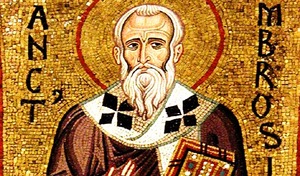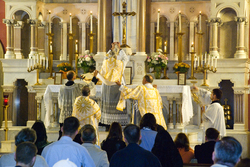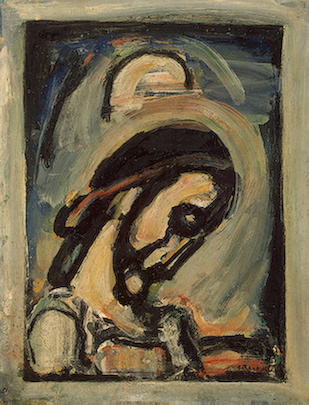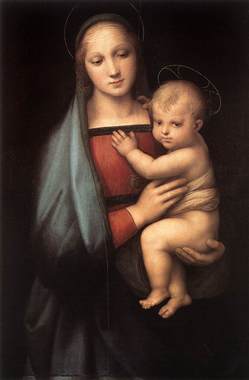 For many this feast is not that important, and one hears some rather dismissals of the feast by the priest who offers Mass on this day. The theology, in fact, is quite important for us as Catholics, Western and Eastern. The Lord is the Good Shepherd and he will not leave the one, holy, catholic and apostolic Church to be consumed by Satan. Here, we don’t honor furniture but the feast signifies the authority of Peter. The clear words of Jesus are recalled: you are Peter, and on this rock I will build my church, and the powers of death shall not prevail against it.
For many this feast is not that important, and one hears some rather dismissals of the feast by the priest who offers Mass on this day. The theology, in fact, is quite important for us as Catholics, Western and Eastern. The Lord is the Good Shepherd and he will not leave the one, holy, catholic and apostolic Church to be consumed by Satan. Here, we don’t honor furniture but the feast signifies the authority of Peter. The clear words of Jesus are recalled: you are Peter, and on this rock I will build my church, and the powers of death shall not prevail against it.
The feast is certainly rooted in Divine Revelation which indicates:
- Jesus to Peter: “feed my lambs … tend my sheep … feed my sheep,” (John 21:15ff)
- “I have prayed that your own faith may not fail; and once you have turned back, you must strengthen your brothers.” (Luke 22:32)
- Jesus: You are Peter and on this rock I will build my Church, and the gates of the netherworld shall not prevail against it. I will give you the keys to the kingdom of heaven. Whatever you bound on earth shall be bound in heaven; and whatever you loose on earth shall be loosed in heaven.” (Matthew 16:18-19)
- Peter is named first in every listing of the 12 Apostles (Matthew 10:2-4, Mark 3:16-19, Luke 6:14-16 and Acts 1:13)
- St. Paul consults with St. Peter specifically to confer with him on disputed points in the faith (Gal 1:18) and testifies that he did it specifically so that he “might not be running, or have run, in vain.” (Gal 2:2).
- St. Peter recognized by St. Paul as the first witness of the Lord’s Resurrection (1 Cor 15:3-7).
Our belief is that the Lord acts in the person of Peter, and his successors.
Saint Leo the Great taught,
Out of the whole world one man, Peter, is chosen to preside at the calling of all nations, and to be set over all the apostles and all the fathers of the Church. Though there are in God’s people many shepherds, Peter is thus appointed to rule in his own person those whom Christ also rules as the original ruler. Beloved, how great and wonderful is this sharing of his power that God in his goodness has given to this man. Whatever Christ has willed to be shared in common by Peter and the other leaders of the Church, it is only through Peter that he has given to others what he has not refused to bestow on them.
The Second Vatican Council says this about the power entrusted to the Roman Pontiff in Lumen Gentium:
Just as in the Gospel, the Lord so disposing, St. Peter and the other apostles constitute one apostolic college, so in a similar way the Roman Pontiff, the successor of Peter, and the bishops, the successors of the apostles, are joined together. … But the college or body of bishops has no authority unless it is understood together with the Roman Pontiff, the successor of Peter as its head. The pope’s power of primacy over all, both pastors and faithful, remains whole and intact. In virtue of his office, that is as Vicar of Christ and pastor of the whole Church, the Roman Pontiff has full, supreme and universal power over the Church. (Lumen Gentium, 22)
With all this in mind, Joseph Cardinal Ratzinger (later Benedict XVI) precisely teaches, based on sacred Scripture and sacred Tradition, that ministry of the Pope, known also as Petrine primacy, is a doctrine of mercy. For him, the Lord’s choice of Peter shows that the Church is built on the rock of mercy and forgiveness. Hence, mercy, compassion, forgiveness is based first on weakness:
This seems to me to be a cardinal point. At the inmost core of the new commission which robs the forces of the destruction of their power is the grace of forgiveness. It constitutes the Church. The Church is founded on forgiveness. Peter himself is a personal embodiment of this truth, for he is permitted to be the bearer of the keys after having stumbled, confessed and received the grace of pardon. The Church is by nature the home of forgiveness, and Peter is the perpetual living reminder of this reality: she [the Church] is not a communion of the perfect but a communion of sinners who need and seek forgiveness. Behind the talk of authority, God’s power appears as mercy and thus as the foundation stone of the Church; in the background we hear the word of the Lord: “It is not the healthy who have need of the physician, but those who are ill; I have not come to all the righteous, but sinners.” (Mark 2:17) (Called to Communion)



